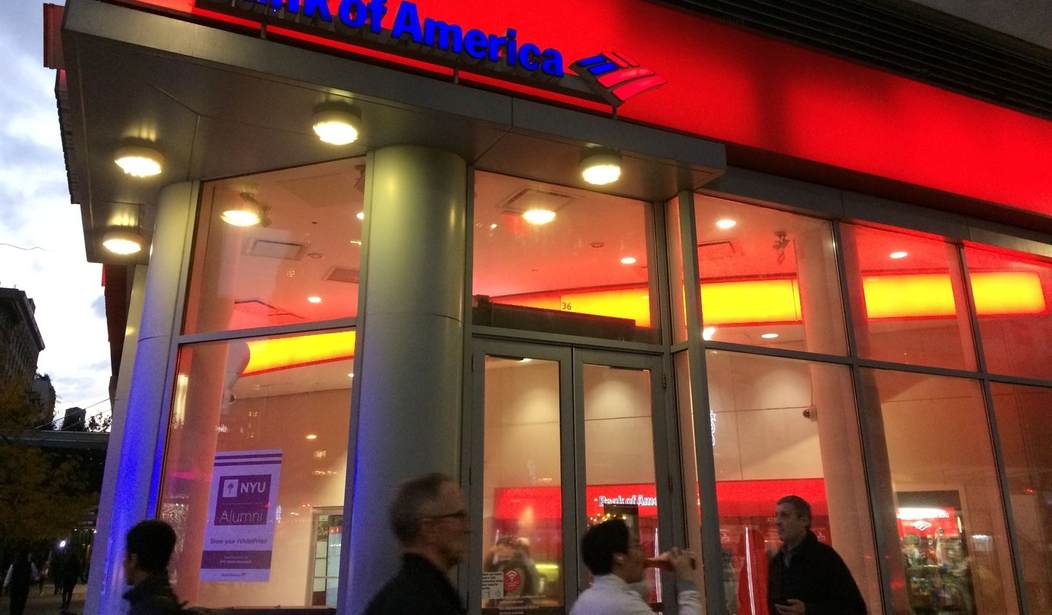Earlier this year, Bank of America and Citigroup announced plans to restrict doing business with firearm manufacturers and purchasers, raising concerns within both the Second Amendment community and among Americans fearing corporate political activism more broadly.
The banks have tried to couch their anti-gun crusading in a way that does not reveal their true intent, but people are policy, and it’s not hard to find the real impetus behind these corporate moves.
After Bank of America announced it would stop offering services to legally operated American companies, it claimed changes would only affect manufacturers of “military style” firearms. This deliberately vague term is used by anti-Second Amendment activists and politicians to incorrectly categorize modern, semi-automatic sporting rifles as equivalent to weapons used by armed forces. As the military uses shotguns, rifles and handguns, it also leaves the door wide open for future hostile incursions from banks.
The public face of Bank of America’s anti-gun initiative is Vice Chairman, Anne M. Finucane. In an interview about its restrictions on firearms manufacturers, Ms. Finucane claimed, “We did it because we felt fear among our employees.” Despite Mrs Finucane’s cogitations on corporate firearm “fear,” the majority of the bank’s workforce appears Republican—therefore likely to be Second Amendment supporters.
In 2016, Bank of America employees gave to Republican candidates by 58%. Citigroup donations are similar, as employees preferred Republicans by 54% while CEO Michael Corbat did the opposite. Both banks were beneficiaries of billions in taxpayer bailouts in 2008/2009 and are now leveraging their financial clout to choke off the rights of consumers to purchase legal products.
Recommended
Ms. Finucane, a well-known liberal Democrat, donated $50K to the Hillary Victory Fund in 2016 and thousands to the Democratic Congressional Campaign Committee and ActBlue, a financial conduit for liberal causes and anti-gun groups. She is married to the very left of center political commentator Mike Barnicle.
Then there is Google. It recently suspended the Gunbroker.com app from its Google Play store. As the primary app platform for Android users, Google is leveraging their near monopoly to foist liberal ideology on the public. Their decision to ban Gunbroker.com’s app seems yet another attempt for unelected CEOs to “legislate” from the boardroom.
Gunbroker.com is just the latest example of Google’s political bias. A video was recently released of Google executives melting down while lamenting Hillary Clinton’s 2016 loss. More astounding than their childish and biased political comments was their assumption that everyone in the room agreed with them, prompting one Googler to ask “is there anything about the election you think is good?”
Google has been accused of creating algorithms that favor the left and ignore the right and was sued for bias against conservative employees. Google executives blew off a Senate request to testify about foreign interference in our elections—possibly as a Republican senator might ask about their own.
The U.S. Congress sets gun policy, but these companies are weaponizing publicly traded capital against lawful gun owners, firearm manufacturers and conservatives. They can restrict legal transactions in part because individuals at the top have a personal political agenda and feel comfortable using assets, employees and shareholders to create pseudo legislation that blocks legitimate commerce and harms law abiding citizens.
Politically-connected activists have every right to donate time and money to anti-Second Amendment causes, but public companies should not be co-opted by a fringe minority to foist their worldview on other businesses and consumers.
These policies also ignore real reasons for gun violence like mental illness, poverty and a booming American drug trade. It’s one thing to spout hollow platitudes about stopping gun violence, but it’s another entirely to deal with hard, causative issues. While reaching far beyond business models and shareholder obligations, these companies are avoiding root causes.
I was recently visiting my son at Army Officer’s Candidate School and stayed at a hotel outside the base. I was accosted in the parking lot by a large man in a big truck who asked for money. I said I had no cash; he suggested we go to the ATM.
Thanks to a weaponized baggage trolley, I was able to push past him to safety. I did not have my firearm because of the difficulties of traveling through multiple jurisdictions with a gun.
I am a customer of one of the banks trying to restrict my legal access to my weapon of self-defense. Ironically, had my assailant succeeded, I would have utilized their ATM. Unable to defend myself, it could potentially have been the last thing I ever did.
These corporate restrictions will have no impact on stopping mass shootings. We gun owners are honest about our need for a weapon of self-defense. Corporate activists should be equally honest about the personal political agenda behind their attempts to restrict them.
























Join the conversation as a VIP Member